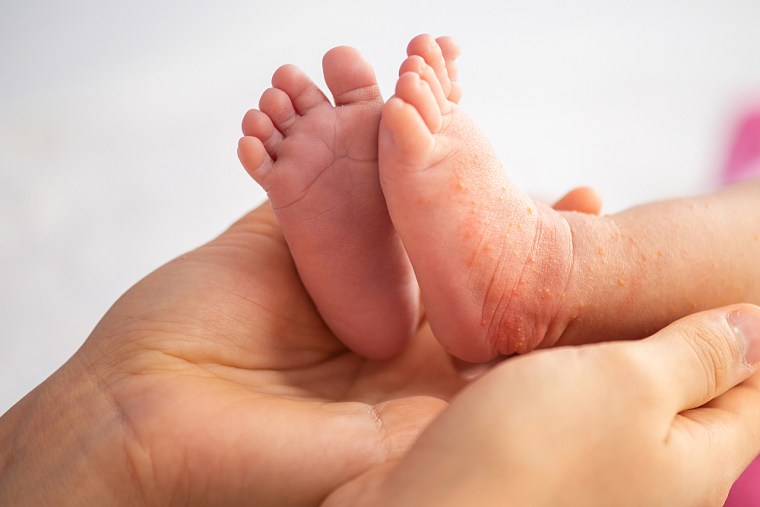The heat rash in your baby can make them irritable and prevent them from falling asleep. Find out how to identify this skin problem and treat it.
In places with hot climates, heat rash in babies is characterized by the appearance of small blisters on the skin that cause discomfort and concern to parents. Also known as prickly heat and miliaria, the problem usually disappears in a few days, but it is important to take care of your baby’s skin.
In this article, you will learn the main symptoms of heat rash in your baby, how to avoid it, and what is the most appropriate treatment. Good reading!
What Is Heat Rash In Babies?
A heat rash, miliaria, or prickly heat, is an inflammatory dermatitis that often occurs in infants and young children, especially in times of warmer and more humid weather. Excessive sweating caused by heat clogs the baby’s sweat glands and blocks sweating. So instead of evaporating, the sweat sticks to the skin and ends up inflaming it.
This inflammation causes small reddish or whitish-looking blisters to appear at the site. The most common areas where a rash develops are the face, diaper area, upper chest, and creases of your baby’s arms, legs, and neck.
When they are in the most superficial layers of the skin, the blisters are transparent, they have a moist appearance, and they break easily. They can also cause swelling, itching, or tingling, making your baby uncomfortable and irritable. In some cases, when the sweat channels are blocked in deeper layers of the skin, the blisters can become pus-filled and inflamed.
What Are The Most Common Causes Of Heat Rash In My Baby?
One of the reasons why prickly heat is more common in babies, especially newborns, is that their sweat ducts are not fully developed. As a result, they end up blocked or break more easily, obstructing perspiration.
Other factors that can block the sweat from your baby’s skin are:
- Hot and humid tropical climate
- Being dressed with too many layers
- Sweating caused by fever
- Being in an incubator
How To Treat Heat Rash In a Baby?
Now that you know what it is and its most common causes, the next step is how to treat the heat rash. In most cases, this problem goes away on its own, without the need for medical attention. However, it is possible to relieve symptoms and prevent infections caused by bacteria.
To soothe your baby’s skin, you can bathe them with warm water and mild soap. You can also moisten a cotton ball or washcloth with cold water and apply it to the affected area to remove sweat.
Remember to dry the area well afterward and avoid ointments or lotions, as they will only clog the pores even more. If it’s hot, dress your baby in light clothing that allows the skin to stay cool, or leave them naked for a while.
Heat rash in babies usually clears up in about three days, without causing any complications. Even so, it is important to be aware of the symptoms to start treatment as soon as possible, avoiding discomfort to your baby and the risk of infections.
Now that you know more about heat rash in your baby, download the Kinedu app and read articles about the health and care of babies at every stage, plus attend classes with experts on a variety of topics relevant to parents!








